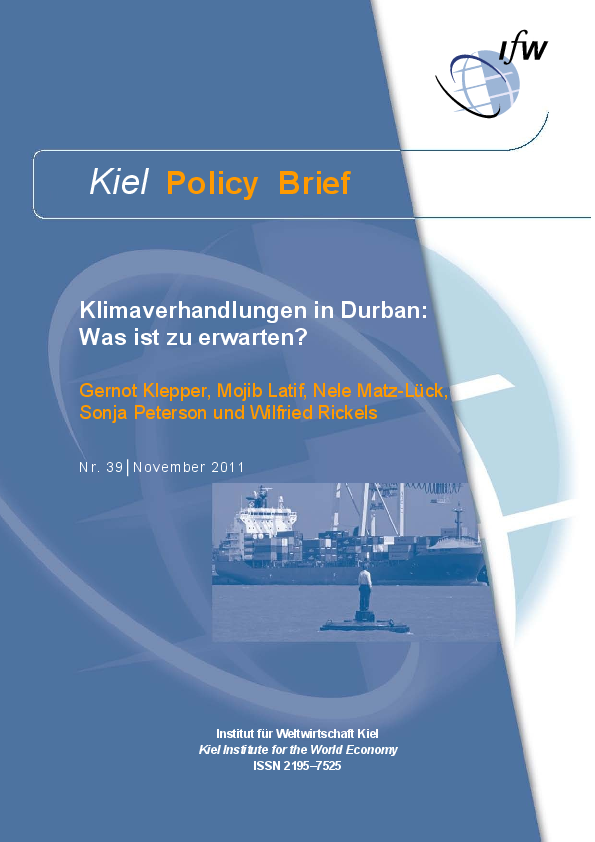Policy Article
Climate negotiations in Durban: what to expect? (in German)
Authors
Publication Date
Key Words
Related Topics
Climate
The first commitment period of the Kyoto protocol expires by the end of 2012 and the UNFCCC and Kyoto parties try to negotiate the future of international climate change mitigation in Durban from November 28th to December 9th 2011. However, there is little hope for success and it can be expected that decisions on the future organization of international emission control will be postponed again. At the moment there is no solution at sight how the conflict between moral arguments to lower per capita emissions in the industrialized countries and economic arguments to increase energy efficiency in several fast developing countries can be resolved. Even though this unresolved conflict is reflected in the general structure of the Kyoto protocol, the protocol established market based instruments for emission control also potentially allowing developing countries to be involved into the global effort for climate change mitigation. These instruments and the established price for CO2 emissions in some regions are crucial elements for the development towards a global low-carbon economy. Consequently, a crucial goal for the negotiations in Durban has to be ensuring the continuation of these instruments. To achieve this goal the European Union with its emission trading scheme is expected to play an important role.






